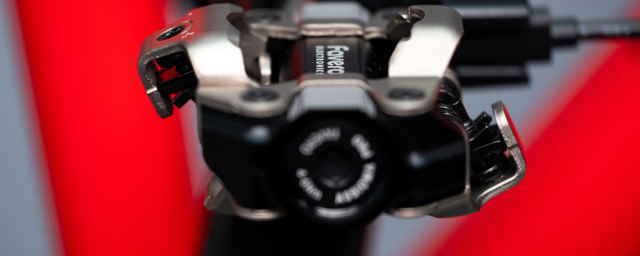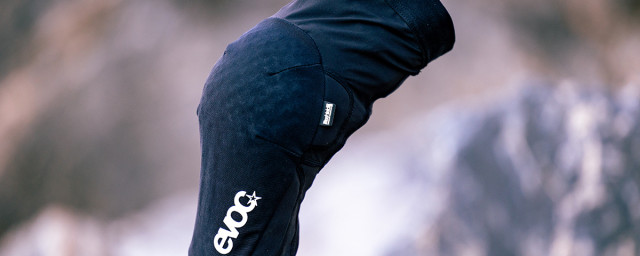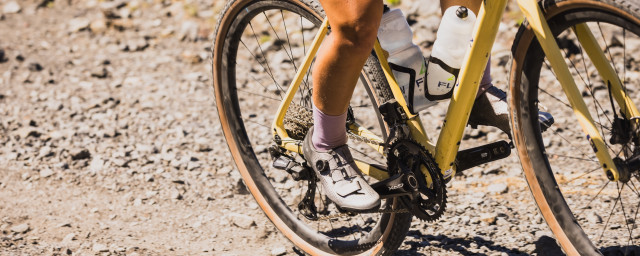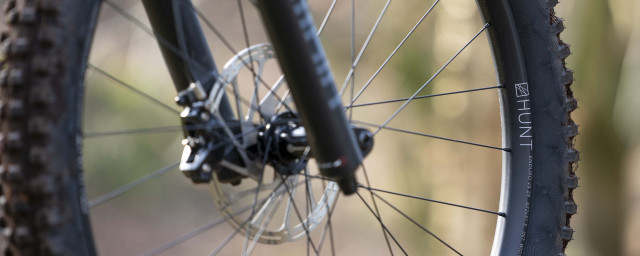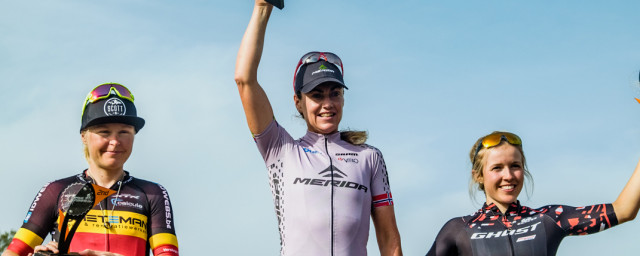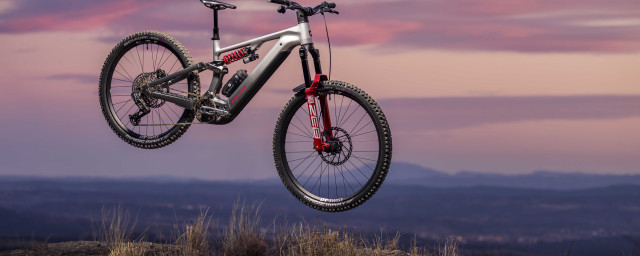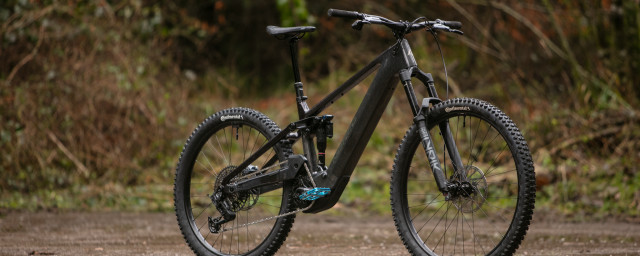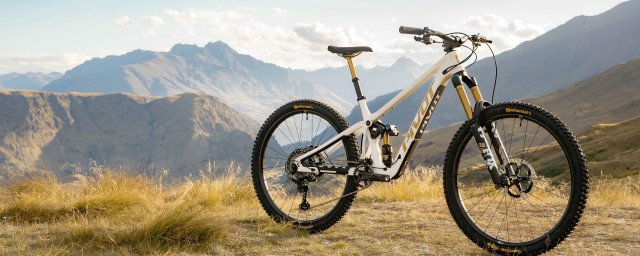Mountain Bike Icons – the Julien Absalon story
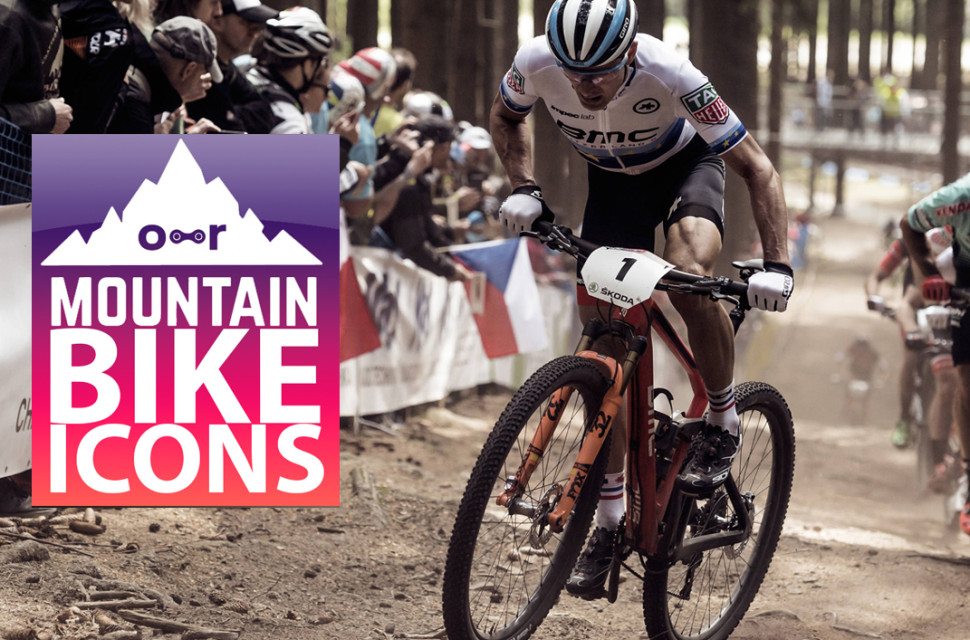
[Words by Steve Thomas / Photographs by Ekoi and Red Bull Content Pool]
With two back-to-back XCO MTB Olympic titles, five World Championships, 33 World Cup wins and seven overall World Cup titles to his credit, Julian Absalon stands tall as one of the sport’s greatest-ever racers. His staggering run of World Cup victories was only just beaten this year by his former arch-rival, Nino Schurter.
- Mountain bike Icons - the greatest riders of all time
- Can you use a road bike helmet for mountain bike and gravel riding?
- Mountain bike etiquette - the lowdown on trail-side manners
Julien retired from competition in 2018 but still rides regularly on the sun-blessed trails of the South of France, a place he now calls home, as he tells us: “I live in the French Riviera and have been here for 15 years but I was born in the Vosges, in north-eastern France.”
With cycling being such a traditional and deep-rooted sport in France, ironically, the nation’s greatest XCO rider didn’t come from a cycling background.
“I don’t come from a cycling family at all but when I was 14 a neighbour of my parents asked me to go with him to ride on a Sunday morning. Living in a small village I was always riding my bike – just like kids do, a few jumps, to visit friends, but I wasn’t do cycling as a sport.”
“He asked me to go and do a real mountain bike ride with him in the forest, and immediately it was “wow” that’s what I want to do. A few weeks after that he asked me to do a small regional race, which I did. About four months later I came 3rd in the National Championships, which happened pretty fast. Then, three to four years later I was junior World Champion.”
The sibling factor
The Absalon name is also familiar on the gravity and enduro circuit, thanks to his younger brother Remy Absalon.
“He started at the same time as me but he’s four years younger than me. When you are young, in France, you do everything; downhill, cross-country and trials but, at 14, you have to choose one discipline and I chose cross-country mountain biking.”
“At that time my brother was doing downhill and wasn’t able to decide on one discipline, as he was pretty good in downhill and cross-country. Then, when enduro came he decided that was what he wanted to do, as it was a mix of both.”
Finding success early and keeping the faith
What was the secret sauce that made him so good and so quickly and for so long?
“I don’t know, maybe I was made for it. Before MTB I did many different sports; skiing, judo and kayaking but I wasn’t really good. When I started MTB, I immediately realised that I was not bad and also it was my sport, it immediately became a real passion.”
Even though he did flirt with other cycling disciplines his faith stayed with the flat-bar side of the sport.
“I did a lot of road biking for training and did some amateur races. And after that, I did some cyclo-cross races, because when I was young I wasn’t really good on the flat sections or in the mud, and my trainer said it would help me – but it was for training.”
“After my first Olympic title many pro (road) cycling teams asked me to come and compete on the road, but I said no – I am a biker and my passion is mountain biking, not on the road.”
Being an Olympic Champion vs World Champion
Julien won his first Olympic title in Athens in 2004, and then doubled up in Beijing in 2008, and with five Elite World titles also to his name how do they compare?
“The first Olympics, I was just focused on myself; my preparation and the race, but I was not prepared to win. After the victory, it was quite difficult, as I was not prepared for it. I was a bit of an outsider, maybe a guy for the podium but not a guy for the win. After that, I started to dominate the sport for 4-5 years.”
“In mountain biking, when you are World Champion, you’re just in a small world, your world and sport. The Olympics is different because, when you become Olympic Champion, it’s a lot bigger. It’s all around the world (mainstream). Also, you are Olympic Champion for life but World Champion for just one year.”
“Beijing was harder than the first one because, for the first one, I was just focused on doing the best I could. But, in 2008 I was the main favourite and was competing to defend my title. The pressure, the media pressure, my own pressure, was really high. For sure it’s more difficult to defend than win your first title.”
The highs and lows
With such an amazing and long list of racetrack success behind him, it’s not one particular win or ride, but the way he went about things that Julien considers his career highlight.
“My passion became my job and, for a few years I was the best biker in the world. Now I can be proud of that and what I achieved – that’s it.”
As for the all-time career low, well – one flat tyre on a summer’s day in 2012 in Hadleigh Park, London jumps out.
“It was really hard, I was not able to defend (the Olympic title), not able to race. I had a flat tyre even before the start and was losing air on the start line. It was my biggest, my worst memory in my career. But that is also why the Olympics are so special; it can be extraordinary, or it can be really traumatic, too.”
Nino Schurter and the GOAT debate
“It’s fantastic, as he was my main rival during my career and he’s still beating the young guys. That means a lot to me, it means that our generation – was a good generation because, at 38 years old, he is still in front and able to win the world title – I’m happy when he wins, even if he beats my record.”
When the time comes
“The decision to stop was not difficult, because my [pollen] allergy got worse and worse. In June 2018 I was racing in Germany, and normally I wasn’t in trouble with the pollen in the north of Europe, but this time I was. After 20 minutes of racing, I stopped and said to myself that’s a sign. I’d pushed my body for 20 years, and maybe now my body is telling me this is the moment. I took my decision in 20 minutes, and I went back to the hotel, and when my physio arrived I told him, ‘Ok, I’ve stopped’ – and I was sure. It was mid-season, but I decided to listen to my body and the signs and stopped.”
“After that, I never thought about whether I should have carried on or not. I’m happy with that because I found a good moment to stop.”
Adapting to change and life after racing
“The transition was really fast because, in 2018, I created my team and was manager and rider, and also. I realised that I was more open to passing on my experience, and thought that if I stopped, then I would be able to give 100% to being a manager. For five years I was still in the same world, just on the other side of the tape.”
“Now I start my third life; first was a racer, second a manager, and now my third one – still in the cycling world and industry, but less competition – as an ambassador (Ekoi, Bosch, BMC), and working with product development. The Ekoi base is 5-6km from where I live, so it’s easy to go to the office, and I’m involved in product development and testing. It’s really interesting, as I’m in contact with the people developing the products, then I ride and give feedback on them.”
“It’s exactly what I want to do now; I’m not a racer, not an athlete anymore. I’m just a sportsman and I like to ride, and now the goals are not time and performance, they are to have fun and discover. The bike is the best way to discover, because on the bike you are totally free, and you’re in contact with nature, can go a long way offroad and discover things and places.”
“When I was racing, I was totally focussed on the performance and racing and training and now this is exactly what I want to do – to ride for fun and discovery.”






